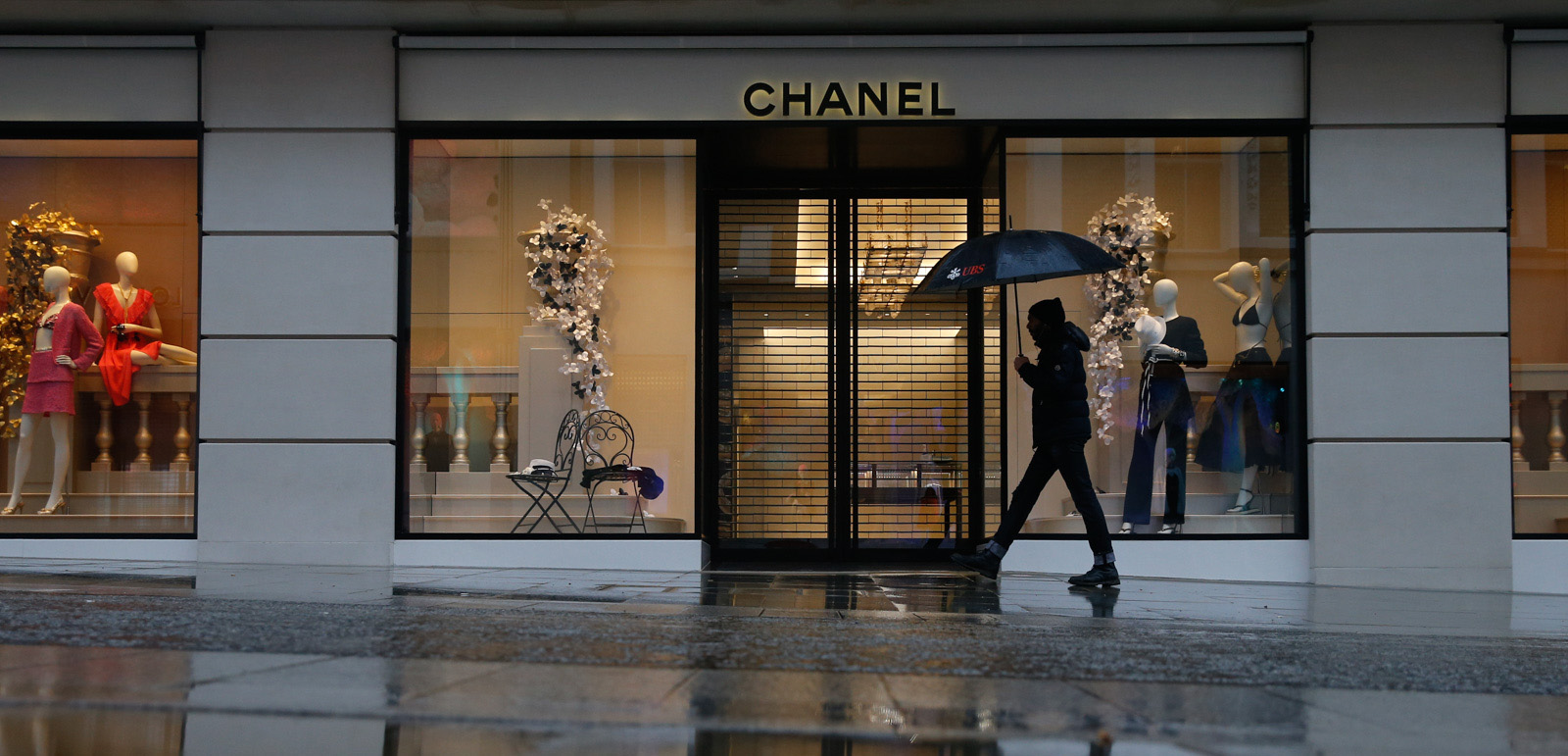From the high street to high fashion, brand boycotts are here to stay
A growing number of consumers are severing their relationships with labels for ethical reasons
–

As Israel’s assault on Gaza continues, a growing number of people are turning to a tried and tested way to show their dissent, refusing to buy products linked to Israel. A poll of my own followers on Instagram revealed that 99% are boycotting brands ranging from Pampers to Puma because of their deeply rooted relationships with Israel.
When it comes to fashion, many have sworn off labels that have released public statements in support of the Israeli state, including American Eagle,Tory Burch and Donna Karan. Marks & Spencer also sparked outrage in November with a holiday advertising post on Instagram featuring an image of burning paper hats in the colours of the Palestinian flag.
Well-heeled customers are also cutting ties with luxury brands. Fashion houses such as Chanel, Givenchy, Louis Vuitton, Tommy Hilfiger, Ralph Lauren and Michael Kors have either voiced their support for or have financial ties with Israel, according to theislamicinformation.com, a website that provides an online tool to check brands’ affiliations with the nation.
Brand boycotts are an effective way for consumers to take action and are inspired by an individual’s “moral compass”, says Emily Abraham, co-founder of Love Luxury, one of the UK’s largest retailers of pre-loved Chanel, Hermes and Rolex products.
“I think for years, western media has been very propaganda-based when it comes to Israel,” she says. “Now that we’re actually seeing live footage, it’s making people think, ‘Hold on a minute, this is not OK, and anybody supporting that, I don’t want to put my pound to it.’”
Boycotts have been highly successful in recent years. Between 2020 and 2022, the animal rights group Peta called for consumers to turn their back on House of Fraser over its sale of animal furs. The retail chain chose to stop doing so in 2023. In 2021 customer pressure also contributed to the decision of jewellery and watch company Harry Winston to stop using rubies from Myanmar, a country that has long persecuted its Rohingya Muslim minority.
While decades-old brands might have the power to recover from boycotts, it isn’t so easy for less-established ones. Shortly after the 7 October attack on Israel Dorit Bar Or, founder of the Tel Aviv-based fashion label Dodo Bar Or, posted a video on Instagram equating Hamas with Isis. Online retailers Net-a-Porter and Mytheresa quickly took the brand off their websites. While it has since been reinstated, the brand and Bar Or’s own reputation have been irreparably damaged, with some pro-Palestinian consumers extending their boycotts to e-commerce sites stocking the label.
More established high-fashion brands have also faced increasing scrutiny. In early November, a number of social media users called for a boycott of Dior owing to rumours that, after voicing her support for the people of Gaza, the Dutch-Palestinian model Bella Hadid had been replaced as brand ambassador by May Tager, who is Israeli. However, it later turned out that Hadid’s contract had ended before the 7 October attack.
The case of Chanel is rather different, though. In mid-October, a leaked letter, co-authored by global executive chairman Alain Wertheimer, stated that the fashion house would be donating $4 million in aid to Israel.
Lily, a 34-year-old Muslim web designer based in Mumbai, started buying Chanel in 2019 and owns more than 10 pieces by the label, including bags, shoes and jewellery. When Chanel hosted a dinner for its VIP clients in India a few months ago she was among those invited. But the brand’s support of Israel has made her see the brand in a new light.
“Chanel was, hands down, my favourite luxury brand, but as a new mother, seeing the pictures and videos coming out of Gaza, I can’t get myself to spend any money there any more,” she says, adding that unless the fashion house publicly changes its stance to a neutral one, or donates money to victims in Gaza, she won’t be buying its designs again.
“I don’t feel like using the things I already have from Chanel right now, but I am not getting rid of them just yet. I spent my hard-earned money and so I don’t want to make any impulse decisions,” says Lily, who is also open to buying from the pre-loved market, since the money doesn’t go directly to the brand.
Whether permanent or temporary, boycotts are more than a fleeting activist trend, especially among younger consumers. And with millennials and Gen Z predicted to account for 70% of the luxury market by 2025, according to a Bain & Co study, brands would do well to pay attention to the ethical concerns of this growing segment of the market.
Luxury fashion enthusiasts such as Lily may flaunt images of their orange Hermes boxes, crystal-studded Prada bags and Chanel chain straps on social media, but they are not blind buyers into a brand’s identity. Lily stopped shopping at Balenciaga after the controversy surrounding its advertising campaign featuring teddy bears in bondage gear. She also distanced herself from Dior after creative director Maria Grazia Chiuri attended a White House dinner honouring Indian Prime Minister Narendra Modi, whose Hindu nationalist government, she says, is prejudiced against Indian Muslims.
“I am not sure whether my boycotting Chanel is going to make any difference,” she says. “But my conscience just doesn’t allow me to support a brand that supports an apartheid regime.”
Topics
Get the Hyphen weekly
Subscribe to Hyphen’s weekly round-up for insightful reportage, commentary and the latest arts and lifestyle coverage, from across the UK and Europe
This form may not be visible due to adblockers, or JavaScript not being enabled.